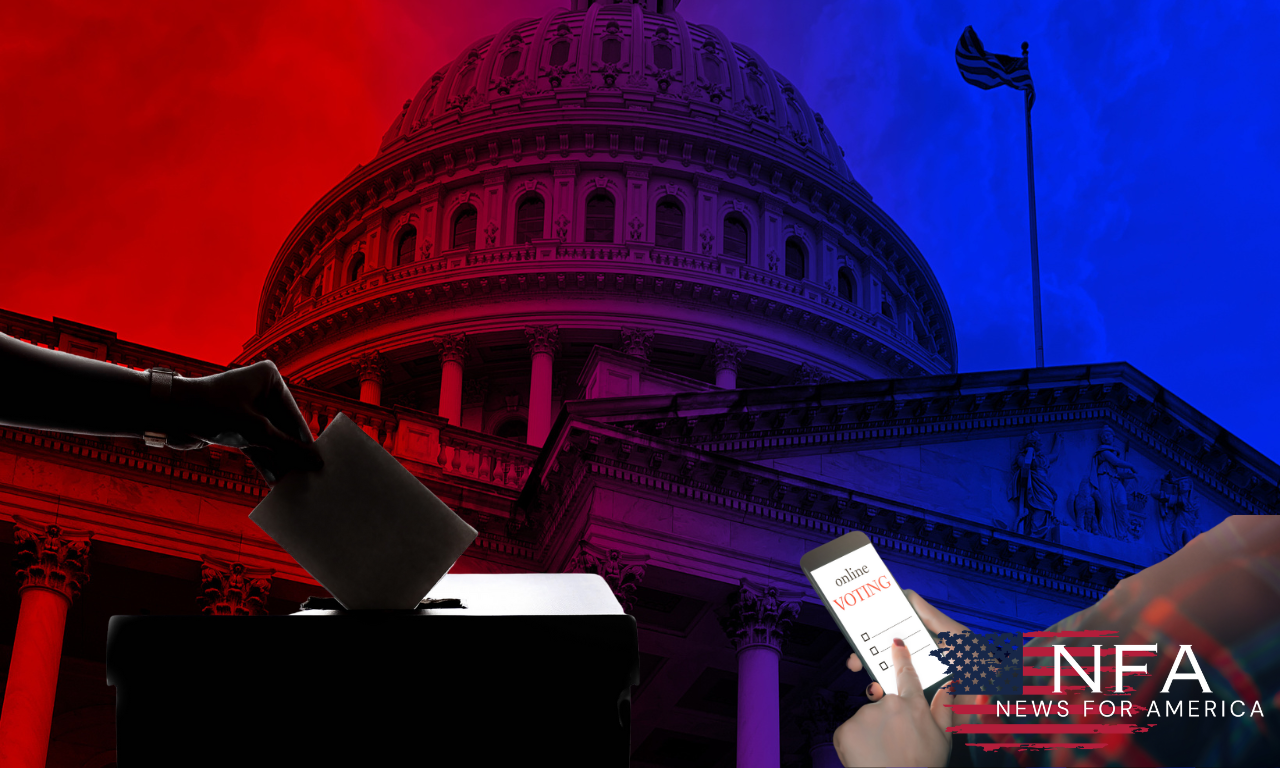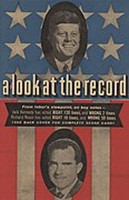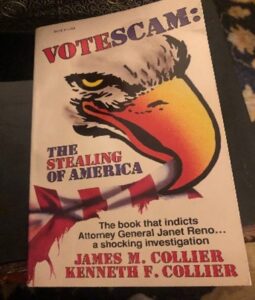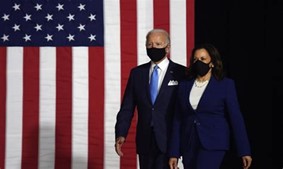ELECTION INTEGRITY’S PARTISAN JOURNEY

Lew Moore
A NEWS FOR AMERICA SPECIAL REPORT
George Washington famously warned against the two party system that was beginning to develop during his presidency. He saw parties as an impediment to national unity that would work toward partisan interests over the national interest. While having two rival, dominant parties has produced stability that the multiparty parliamentary systems don’t enjoy, there have been problems.
In the election integrity space one problem is clear. It has been impossible for a sustained bipartisan effort to develop to make elections more secure. Prominent members of each party have acknowledged or even aggressively promoted the idea of voter fraud— but only when it has been in their direct interest.

The Kennedy-Nixon 1960 presidential election was the closest national contest up until that time. Allegations of voter fraud in Chicago and in rural counties in Texas briefly put the election results in doubt until Richard Nixon signaled he was not interested in investigating them.
Allegations of voter fraud received national attention immediately after the extremely close presidential election of 1960. Illinois and Texas provided the margin of victory for John F. Kennedy over Richard Nixon. Irregularities surfaced in Chicago, a jurisdiction under the complete sway of the Richard Daley political machine. Texas, home to Kennedy’s running mate Lyndon Johnson, had been the scene of vote fraud allegations for many years. Nixon chose not to pursue an investigation and the truth will never be fully known. It is interesting to note that allegations of voter fraud frequently centered around absentee ballots, our nation’s first foray into voting by mail.
There has always been incidences of vote fraud in America. Advancing technology and ever more centralized elections before 2000 caused some on the fringes of the political dialogue (left and right) to raise the alarm about the potential of a systemic threat. In 1992 the book Votescam: the Stealing of America was widely read by a broad anti-establishment audience. The book’s thesis was that “for almost three decades the American vote has been subject to government-sponsored electronic theft,” the result of large corporate interests working in combination with the national security state.

The book Votescam: The Stealing of America was the result of a 25 year investigation by two journalists into “computerized voter fraud” that culminated in 1992. These were the first allegations of this type that were heard in the mainstream media of that day.
But it was George Bush’s “hanging chad” election of 2000, decided by a partisan majority on the Supreme Court that turbo-charged the “election integrity” activists of that time. One consequential result was the passage of HAVA (Help America Vote Act) in 2002. This federal election legislation, meant to reform elections, caused jurisdictions all over the country to take advantage of new federal monies made available to them. They ditched hand-counting of paper ballots and mechanical voting machines for a new generation of interconnected, computerized hardware.
It wasn’t long before allegations of irregularties surfaced, centered on Diebold voting machines. Soon a left-leaning Seattle group, Black Box Voting, was gathering national attention with their assertion that these new machines were stealing our elections. Their efforts with notorious hacker and election reformer Harri Hursti were chronicled in a popular HBO documentary, Hacking Democracy, in 2006.
In producing the documentary Hursti conducted three tests with Black Box voting and local officials to see if he could hack election equipment currently in service. He was successful in every case. One test occurred in Emery county, Utah and was conducted on a Diebold TSx touchscreen. While Hacking Democracy got good reviews and a decent-sized audience, its message only resonated with left of center Democrats and a small group of anti-establishment types of various political persuasions.
The coming of the Ron Paul and Tea Party movements brought new concerns about voting systems on the right. Mainstream conservatives saw all this as crank conspiracy theories or Democrat sour grapes over the 2000 election outcome. Indeed no small amount of “election denial” had occurred among Democrats gunning for George Bush. The sentiment dissipated rapidly once Barack Obama ascended to the Oval Office.

The data and video clips brought to light by True the Vote in the documentary 2000 Mules made the case that the 2020 election was stolen in a concerted and systematic fashion.
This state of affairs among Democrats was brutally interrupted with the election of Donald Trump. With the help of Never Trump Republicans they created a narrative around the fake “dossier” that Trump was a tool of the increasingly belligerent Russians. From Hillary Clinton on down Democrats were now saying, shockingly, that the Russians “stole the election” for Trump, casting aspersions on the now ubiquitous voting machines and tabulators, as well as on Trump and the Russians. Republican leaders saw this as a partisan attack on Trump and didn’t address the voting systems until covid hit giving Dems the chance to put lax emergency voting rules around the country.
After 2016 Hillary Clinton travelled America asserting that the election had been stolen away from her. Meanwhile senators Amy Klobuchar, Elizabeth Warren, and Kamala Harris, each planning their own presidential bid, were questioning the reliability of Dominion and other voting machines. The mainstream media was dutifully reporting on America’s vulnerability to Russian election interference through the machines. Harry Hursti returned to HBO as the central figure in the 2020 anti-voting machine documentary Kill Chain, which was nominated for a Emmy. Republican leaders approached this with various degrees of skepticism.

Corporate media tells us that the extremely lackluster Joe Biden, who often ended the campaign day before noon during the election, received millions more votes than the popular Barack Obama received in 2012. Election integrity activists on the Left have not shown concern.
But the 2020 election brought mail-in ballots everywhere, and ended with Trump’s allegations of a “Big Steal.” Reliably, the “fake news” lashed out at Trump. Republicans, who went to bed on election night thinking Trump pulled it off the victory, were in for a rude awakening. Large numbers of the GOP rank-and-file came to believe that the election was stolen.
At that moment leading Democrats and their media allies quickly reversed course. Without a hint of self-reflection, leading Democrats were suddenly determining that anyone who questioned the outcome of the 2020 election was “a threat to democracy,” a narrative that continues to this day. Incredibly, they expect you to forget the 150+ Democrats, party leaders who had questioned the outcome of elections from 2000 till 2020.
But a large segment of the GOP grassroots sincerely believe there are serious problems with our elections. There are grassroots Democrats and others on the left who know there is as well. Naomi Wolf is a writer and former political consultant who has worked for the likes of Bill Clinton and Al Gore. She has just announced a new election integrity initiative to return to in-person election day voting and getting rid of the machines. The current Georgia election case concerning Dominion voting machines was brought by Democrats who were concerned Staci Abrams would be a victim of voter fraud in the governor’s race there in 2018.
Here’s to hoping a serious, bottom-up, bipartisan effort to fix our elections can develop, building on the efforts concerned citizens of all political persuasions over the years. But I’m not holding my breath. The trajectory America’s elections— heading toward highly centralized ranked choice voting conducted on the internet— should be truly frightening to all people of good will.

Copyright News for America 2024
